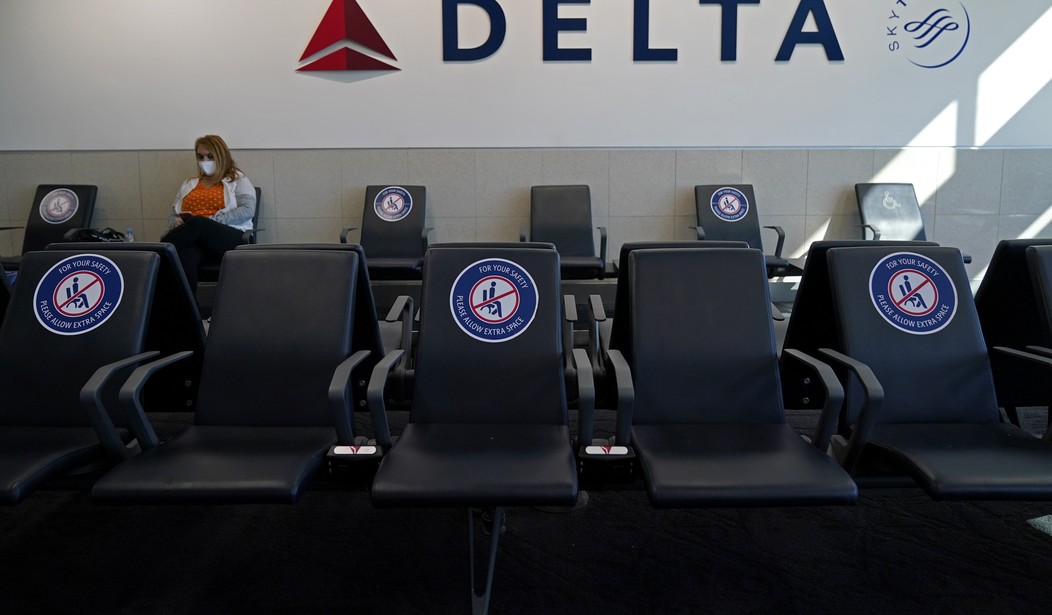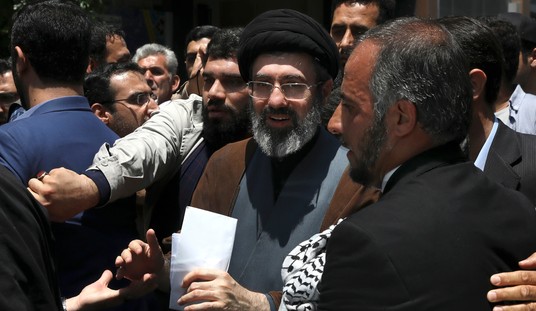There’s a minor freakout happening on social media about this passage in a new AP story, understandably so given how it’s phrased. Are the feds so consumed with limiting the spread of Delta that they’re considering requiring proof of vaccination for all interstate travel?
Like, checkpoints at a state’s border where drivers have to show their easily-forged CDC vaccination card to be allowed in? “Papers, please.”
Would that even be legal? Who would man those checkpoints, exactly?
Zients said the White House still has no plans to develop the infrastructure for so-called vaccine passports, despite some criticism from businesses that the patchwork of local and state verification systems leaves them without a clear way to enforce mandates. The Biden administration had promised to share frameworks for verification systems, but ultimately left them all to the private sector and local governments, in part because of political sensitivities.
Still, while more severe measures — such as mandating vaccines for interstate travel or changing how the federal government reimburses treatment for those who are unvaccinated and become ill with COVID-19 — have been discussed, the administration worried that they would be too polarizing for the moment.
That’s not to say they won’t be implemented in the future, as public opinion continues to shift toward requiring vaccinations as a means to restore normalcy.
It’s almost certainly a case of poor phrasing. What the White House is actually looking at, I bet, is requiring vaccine passports for interstate mass travel. If you want to travel to another state by plane or train, where you’ll be around crowds of strangers, proof of vaccination might eventually be required. But if you want to pack the kids into the family truckster and drive down to Florida for a week of unmasked, unvaccinated fun, no one’s going to stop you. It’d be logistically impossible. And insanely divisive at a moment when the country doesn’t need any more reasons to feel divided, especially as regards COVID policy.
I’m curious how SCOTUS would rule on an attempt by the feds to limit interstate mass travel to the vaccinated. On the one hand, the Court clearly has no problem with state entities mandating vaccines. And the feds’ Commerce Clause power is broad, if no longer as broad as it was 25 years ago. During a public-health crisis, I’m guessing the Supremes would uphold a federal vaccination requirement for mass travel.
But a 6-3 conservative Court isn’t naturally friendly to novel exertions of power by a Democratic administration. The authority to regulate interstate commerce also belongs to Congress, not the president. And it’s already a matter of judicial precedent that Americans have a constitutional right to travel between states. A vaccine mandate on mass travel wouldn’t completely abridge that right but it would burden it by forcing citizens to travel by car instead of plane or train. Where does SCOTUS land when the right to travel goes head-to-head with federal regulation of commerce between the states?
My guess: It doesn’t matter. The airlines will convince the Biden administration that requiring proof of vaccination to fly just isn’t logistically feasible.
[American Airlines CEO] Doug Parker said checking passengers for proof of vaccination “wouldn’t be physically possible” on domestic flights without causing enormous delays to the airline system. By contrast, this could be done on international flights because there is more time between flights and passengers are already checked for passports, he noted.
“In a world where we still have whatever it is, 40% of the United States not vaccinated for reasons only they can explain, requiring vaccinations to travel and not requiring vaccinations to do anything else around the country isn’t something we’re looking to do,” Parker added…
“We certainly encourage it everywhere we can, encourage it for our customers and our employees, but we’re not putting mandates in place,” Parker told the Times.
Delta’s CEO has also said that he doubts his company will require vaccination as a condition to fly, although he said that back in May when the new variant hadn’t yet arrived and changed the game. In fact, Delta, American, and Southwest Airlines aren’t even requiring employees to get vaccinated, let alone passengers. (United does require staff to get their shots.) That’s a major obstacle for the White House, which, I’m sure, would prefer to impose a vaccine mandate for flying by lobbying the companies behind the scenes to institute that policy on their own, without any official federal regulation. Americans are more tolerant of mandates imposed by businesses than by government on the theory that property owners have a right to set conditions for access to their property. But go figure that the airlines don’t want to lose unvaccinated customers after a hard year, especially knowing that the unvaxxed are more likely to take risks like traveling than the vaxxed are.
If anything ends up changing their mind on vaccine mandates, it’ll be epidemiology. If flights end up becoming hot spots for Delta transmission despite the precautions taken by the airlines to prevent infection, word will get around and business will collapse. At some point, even a cumbersome vaccine passport process may be more profitable to them than eschewing vaccination requirements.
Whatever happens with interstate travel, it might be awhile before international travel is back to normal. Exit question: Remember last year at the start of the pandemic when Trump “considered” a cordon sanitaire of the tri-state New York area?








Join the conversation as a VIP Member